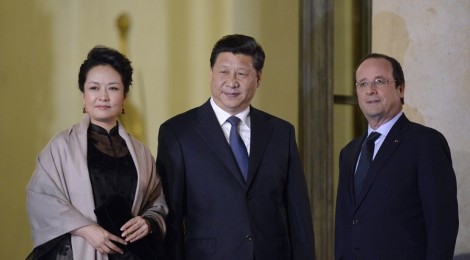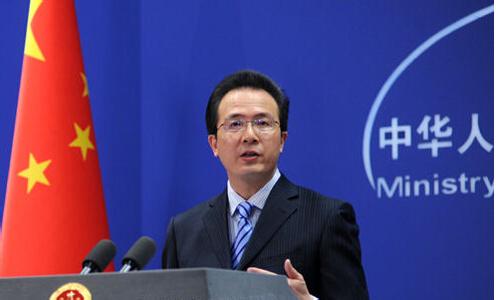
Global terrorist threat: is Beijing reconsidering its foreign policy principles?
The recent terrorist attacks in Paris and in Bamako, together with the shot down of a Russian jet by the Turkish air force, have shaken the whole Western world. And the whole picture of the effects these events will have on the international theatre is still to be seen.
When dealing with foreign policy, China says its decisions derive from the Five Principles of Peaceful Coexistence, originally conceived in 1954 by Chinese and Indian prime ministers at the time. Therefore, dealing with international disputes, Beijing has always emphasized an approach of non-interference in other’s country internal affairs and the respect for the sovereignty and territorial integrity of other nations.
In recent years, China continues to make reference to its principles, but it now seems that the time has come also for China to step up and engage in global antiterrorist efforts. Chinese leaders have long been reluctant of joining the international fight, worried about becoming entangled in foreign conflicts. But the situation may have changed after several Chinese citizens have recently been killed in terrorist attacks. Last Friday, three Chinese railway executives were shot dead at Radisson Blu hotel. Also last week, the Islamic State said it had executed Fan Jinghui, a former teacher in Beijing, the first Chinese citizen known to have been kidnapped by the Islamic State, at the beginning of September.
These epi sodes have intensified the pressure on Chinese leaders to play a more active role in antiterrorism. After the attacks in Paris, the Oriental Pearl Tower, dominating the darkened Shanghai skyline, glowed blue, white and red in solidarity. After the attacks in Mali, the spokesperson for the Minister of Foreign Affairs, Hong Lei, declared China is open to new options in the global fight against terrorism. This leaves the door open for a potential Chinese participation in joint antiterrorist efforts, even if it is still not clear to what extent and which kind of coalition China would join.
sodes have intensified the pressure on Chinese leaders to play a more active role in antiterrorism. After the attacks in Paris, the Oriental Pearl Tower, dominating the darkened Shanghai skyline, glowed blue, white and red in solidarity. After the attacks in Mali, the spokesperson for the Minister of Foreign Affairs, Hong Lei, declared China is open to new options in the global fight against terrorism. This leaves the door open for a potential Chinese participation in joint antiterrorist efforts, even if it is still not clear to what extent and which kind of coalition China would join.
President Xi is going to be in Paris on November 29th and 30th to attend to the UN Climate Change Conference, where he is expected to hold bilateral talks with the French and the American presidents to talk about a potential common strategy against terrorism. He will then fly to Johannesburg to chair the Summit of Forum on China-Africa Cooperation from December 2nd to 5th. The recent attack in Mali represents the second circumstance in which Chinese citizens have been killed in Africa, therefore the president will probably take the chance to address the strengthening of bilateral cooperation in counter-terrorism and in the fight against extremism.
The ability of Chinese leaders to protect their citizens is vital for the Chinese Communist Party, and any threat to that is going to undermine its legitimacy. The eventuality of a new approach in China’s antiterrorism strategy, is also linked to the current crackdown in the western Chinese region of Xinjiang. The aforementioned principles of peaceful coexistence are particularly important also because China struggles with internal separatism in Tibet and Xinjiang, defined as terrorism in Beijing. By taking a principled stand on non-intervention in all conflicts, China is able to repudiate outside criticism of its government’s handling of internal affairs. President Xi declared: “There must not be double standards” in the fight against terrorism, making explicit reference to China’s internal ethnic conflicts.
In the meanwhile, a climate of tension has spread within Chinese borders, especially in the major cities. Since November 15th security checks have been reinforced in the capital, where, according to the Beijing Youth Daily, more than 1.6 billion people have been inspected. Larger controls are to be expected in coincidence of the main festivity, especially the coming Lunar new year’s.




